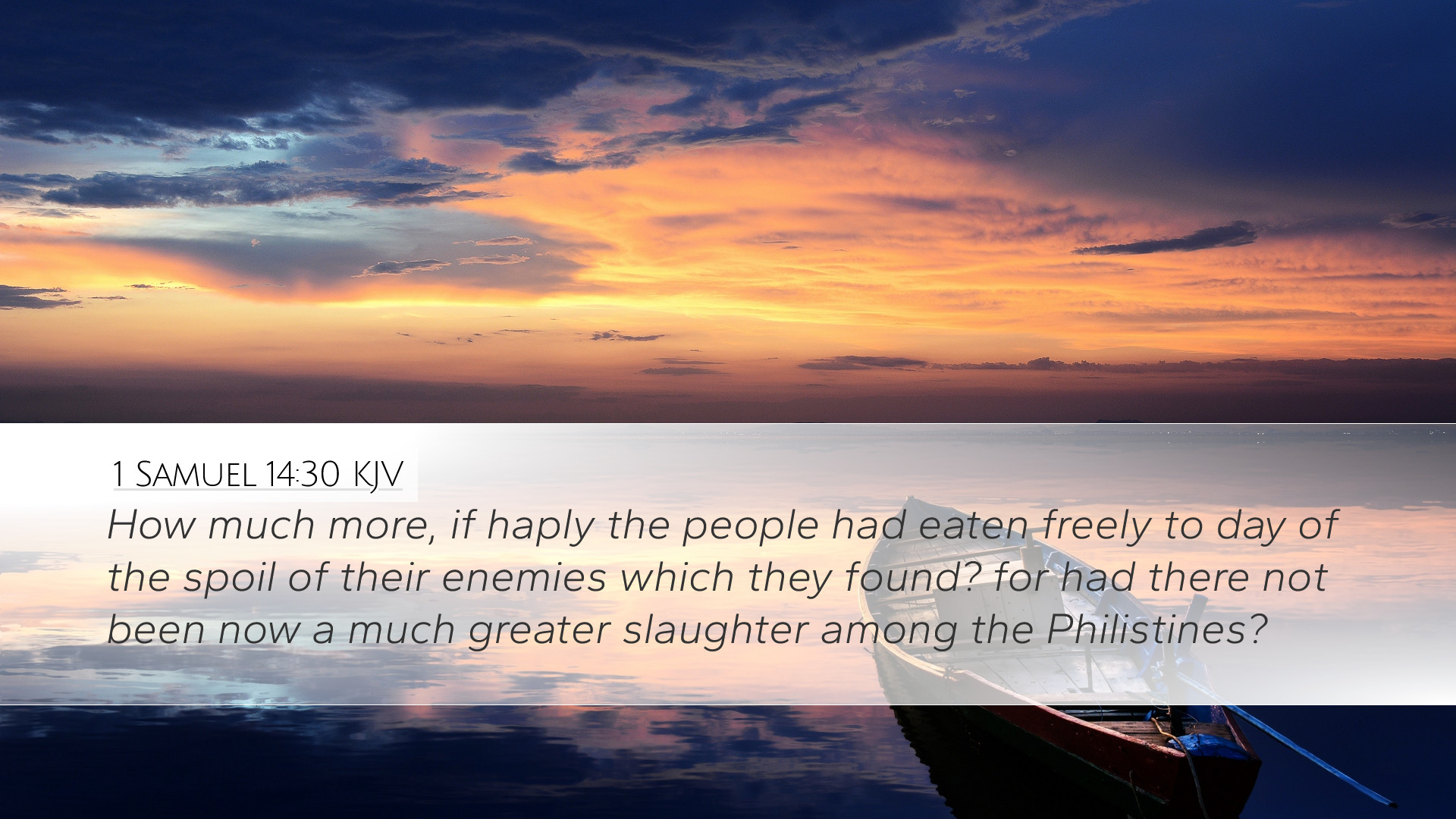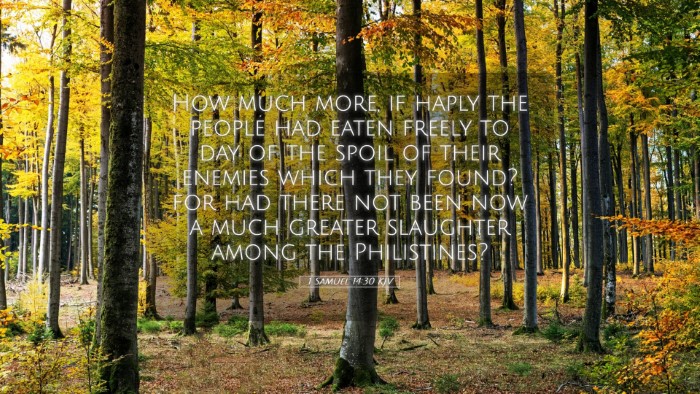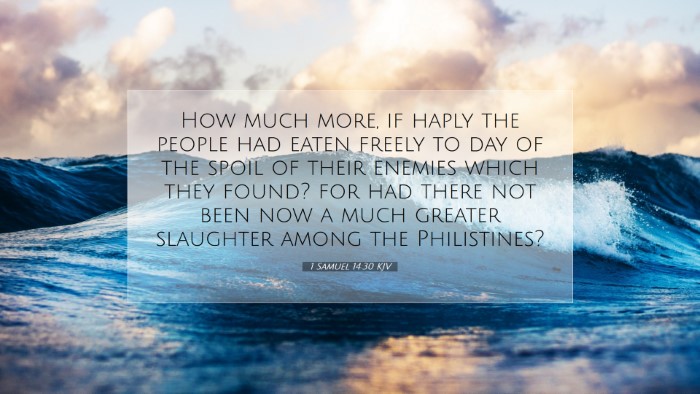Commentary on 1 Samuel 14:30
In this passage, we observe the unfolding of a critical moment in the narrative of Israel's early monarchy. The verse reads:
"How much better if they had eaten freely today of the spoil of their enemies which they found? For now the rage of Jonathan hath caused the people to perish." (1 Samuel 14:30)
Overview of Context
This verse occurs within the context of a battle between the Israelites and the Philistines. Jonathan, the son of King Saul, led a daring offensive against the Philistine garrison, sparking a larger conflict. Following the initial skirmish, an oath was imposed by Saul that prohibited his men from eating until evening, which ultimately had adverse effects on the morale and strength of the Israelite troops.
Theological Significance
The verse speaks volumes about leadership decisions and their ramifications on the collective wellbeing of the community. Here, we unpack the intricate theological implications of Saul's decree and the corresponding consequences upon Jonathan's men.
1. The Consequences of Rash Leadership
Saul's oath showcases a fervent yet shortsighted approach to leadership. Matthew Henry comments on how Saul's unwise decision to forbid the eating of spoils reflects a lack of discernment, likening it to a king whose rules unnecessarily burden his subjects. This brings forth an important lesson for leaders today: the wisdom of governance must consider the welfare of those being led.
2. The Nature of Vows and Oaths
Albert Barnes expands on the theme of oaths in this passage, elucidating how they can bind leaders to obligations that may harm those they are meant to protect. He suggests that while oaths carry weight, they should be rooted in wisdom and mercy. If not, they can result in unintended consequences, undermining the spiritual and physical vitality of the very people such vows aim to guide.
3. Jonathan's Insight
Jonathan’s actions and thoughts reflect a deeper understanding of the situation than that of his father Saul. Adam Clarke highlights Jonathan’s realization that the people were suffering from hunger, and thus, he willingly tasted the honey despite his father's oath. This act symbolizes a digression from established rules when those rules become detrimental. It also emphasizes the importance of discernment and compassion in leadership, mirroring the teachings of Christ regarding mercy and sacrifice.
Practical Applications
As we ponder the implications of 1 Samuel 14:30, several practical applications emerge for contemporary church leaders, students, and theologians:
- Wisdom in Decision-Making: Leaders are called upon to weigh the consequences of their decisions carefully. An approach that prioritizes institutional integrity over human wellbeing may lead to detrimental outcomes.
- Understanding Human Needs: A vital lesson in pastoral leadership is recognizing and responding to the needs of those they lead. Jonathan's example demonstrates the necessity of adapting one's actions based on the context of the people’s condition.
- The Importance of Mercy: In the broader biblical narrative, mercy is a recurring theme. Saul's rash vow reflects a rigidity that stifles compassion, a cautionary tale for leaders to prioritize grace and understanding.
Conclusion
1 Samuel 14:30 offers profound insights into the dynamics of leadership, the implications of swearing oaths, and the need for compassion in governance. By examining this passage, we glean valuable lessons that transcend time and culture, urging modern believers to lead with integrity, wisdom, and a heart for the holistic welfare of their communities.
Further Reflection
As we reflect on this narrative, we invite readers to consider their approaches to leadership—whether in ministry, academia, or community governance. May the lessons drawn from Jonathan's courageous actions and Saul's ill-advised oath inspire leaders everywhere to nurture environments where spiritual and physical well-being flourish.


